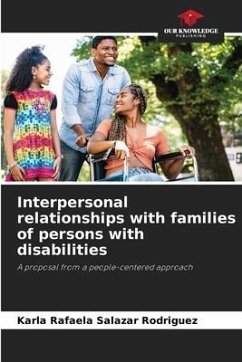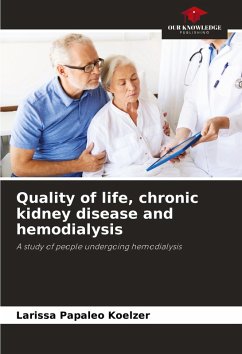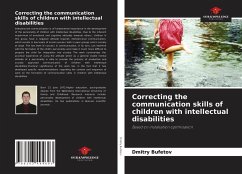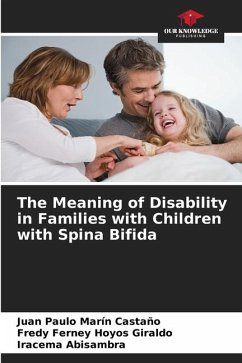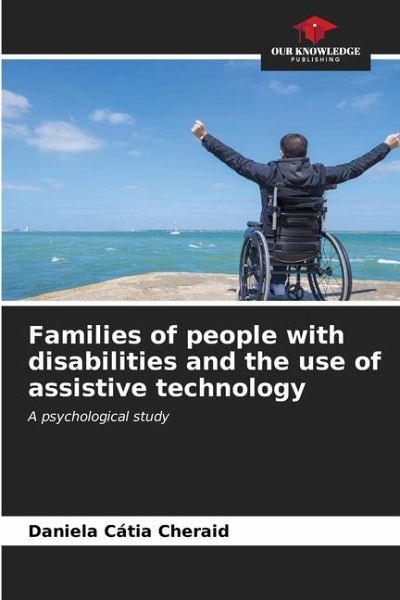
Families of people with disabilities and the use of assistive technology
A psychological study
Versandkostenfrei!
Versandfertig in 6-10 Tagen
27,99 €
inkl. MwSt.

PAYBACK Punkte
14 °P sammeln!
The family plays an important socialising role and is fundamental to the formation of the first emotional bonds, to the development of learning and to the constitution of the individual, preparing them for life. The quality of interactions is related to the emotional adjustment and behaviour of each person in the family dynamic, which can contribute to the perception of their potential and difficulties. Resources such as Assistive Technology (AT) favour autonomy, functional independence and social and family interactions, facilitate access to education and work, and can be applied in various c...
The family plays an important socialising role and is fundamental to the formation of the first emotional bonds, to the development of learning and to the constitution of the individual, preparing them for life. The quality of interactions is related to the emotional adjustment and behaviour of each person in the family dynamic, which can contribute to the perception of their potential and difficulties. Resources such as Assistive Technology (AT) favour autonomy, functional independence and social and family interactions, facilitate access to education and work, and can be applied in various contexts, improving the user's quality of life. Family members' expectations regarding the use of assistive technology developed in information technology may refer to the desire for the disabled person to develop communication and autonomy, improve self-esteem and acquire or improve social and school skills. However, family members may feel insecure when they realise that the disabled personcould become totally independent, causing the family to change its dynamics.






